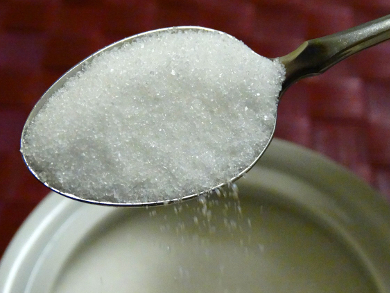Saccharin consumption in any country always expressed an interplay of several economic forces. It was source of a luxury tax that was easy both to levy and to increase as a way of protecting the interests of a national sugar industry against an overpowering competitor. The interests clashed with the demands of the people for an adequate provision of sweetener. Even before (!) the start of production, the first saccharin factory in the world found itself in the crosshairs of the state. From the very beginning it had to maintain “special production books” that were to be accessible to the tax authorities at all times, allowing duly accredited agents for tolls and taxes to monitor the saccharin factory of Fahlberg, List & Co. “inconspicuously”. But that was only the beginning.
A 1st Sweetener Statute was adopted in July, 1898, under pressure from the sugar industry. According to its terms, it was necessary that “foodstuffs, beverages, or tobacco products prepared with use of artificial sweeteners” be correspondingly labeled. Moreover, any use of artificial sweeteners was forbidden during commercial production of “beer, wine, fruit juices, canned goods, liqueurs, or syrups.”
The 2nd Sweetener Statute was adopted in July, 1902, under massive pressure from the sugar industry. It forbade saccharin manufacture within the German Empire, declaring further that only Fahlberg, List & Co. could produce saccharin for the German market as the sole licensed manufacturer [18]. Furthermore, such saccharin could only be sold at the price set by the German government, and only in pharmacies on the basis of a doctor’s prescription.
The 3rd Sweetener Statute of 1922 largely unblocked the manufacture and processing of saccharin, although it remained an imperial monopoly, which is to say the government could still establish the price, and any difference relative to production costs would flow into the Imperial coffers.
The 4th Sweetener Statute did away with the Imperial monopoly on saccharin due to the excessive overhead expenses, providing instead for a sweetener tax of 2 Reichsmark (RM)/kg.
The 5th Sweetener Statute was instituted in 1939 in response to massive pressure from the National Socialist Reichsbauernbund (Imperial Farmer’s Alliance), whereby the sweetener tax was increased from 2 RM/kg to 7.50 RM/kg. This statute was later carried over by the Federal Republic of Germany, and repeatedly amended. Contrary to the experience-based assumption that a Finance Minister would never dispense with a luxury tax once it had been adopted, the 5th Sweetener Statute was in fact abolished in 1965 due both to the administrative burden it entailed and adoption of European Union tax harmonization measures.
Reference
[18] P. Pries, Gordian 1991, 91, 35.
- Back to The Saccharin Saga – Part 2




